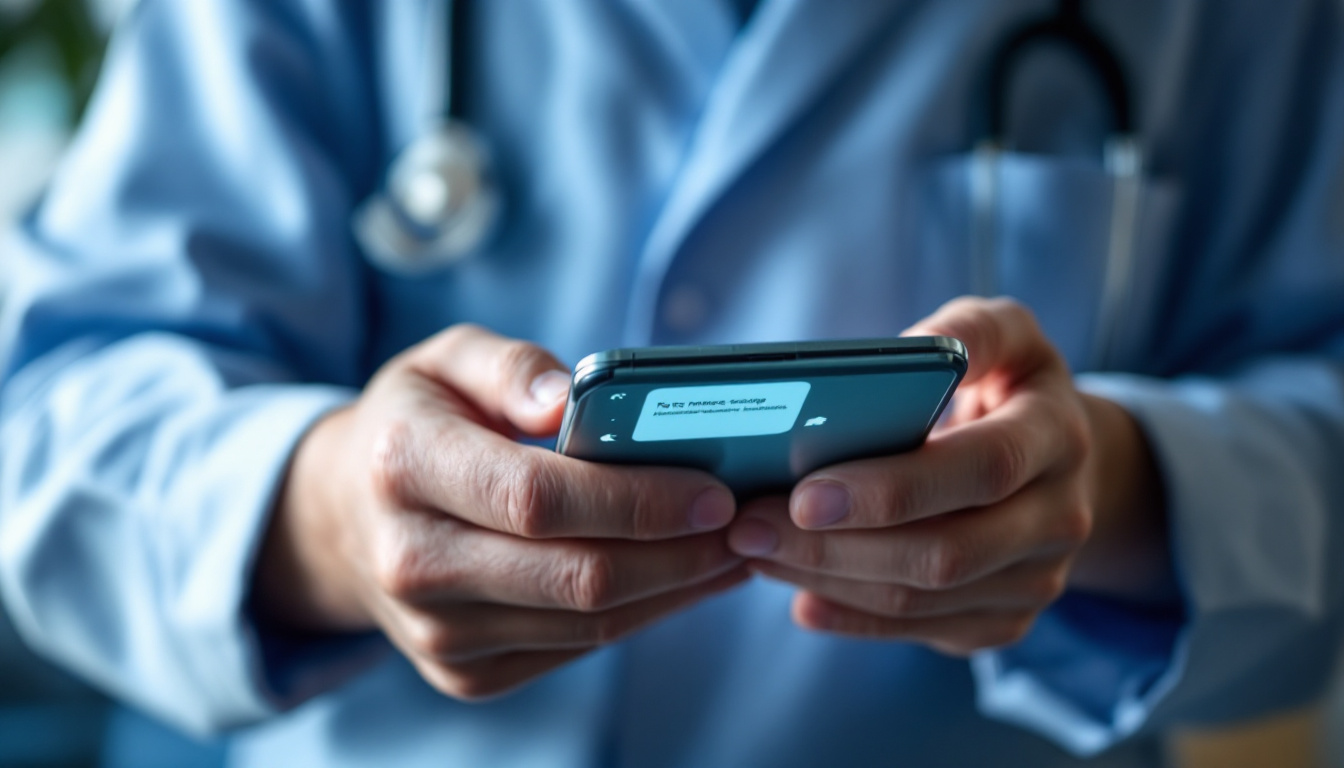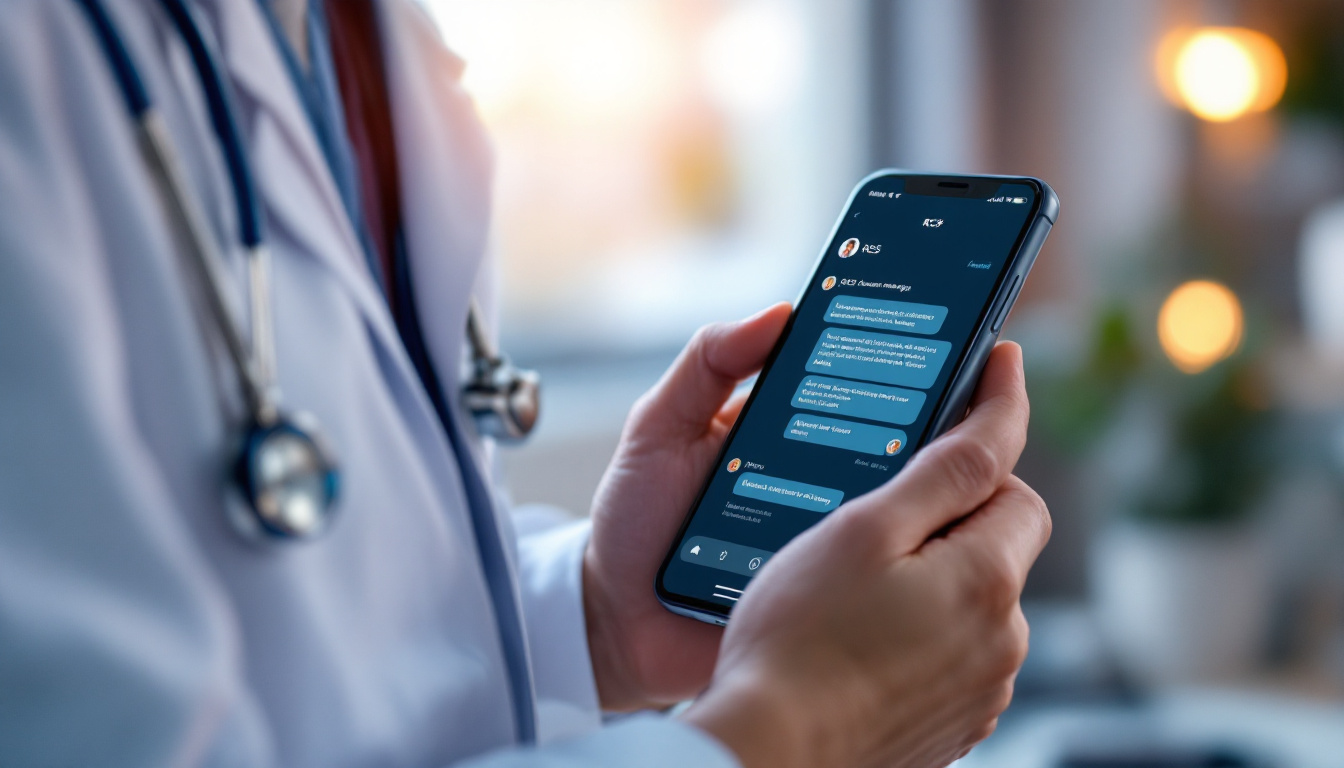In recent years, the healthcare industry has been experiencing a significant transformation in how it communicates with patients. One of the most exciting developments is the integration of Rich Communication Services (RCS) Business Messaging. This powerful tool not only enhances appointment scheduling and reminders but also improves overall patient engagement. In this article, we will explore RCS Business Messaging in detail, its role in healthcare, and the potential it holds for the future.
Understanding RCS Business Messaging
RCS Business Messaging is an advanced messaging protocol designed to replace traditional SMS with rich, interactive communication options. This technology allows businesses, including healthcare providers, to send multimedia messages, utilize chatbots, and enable two-way conversations through mobile devices.
What is RCS Business Messaging?
RCS is a communication protocol that modernizes SMS by adding features like images, buttons, carousels, and quick replies. This enhances user engagement, making messages more visually appealing and informative. For example, when a healthcare provider sends an appointment reminder, it can include a map link for directions, a button to reschedule, or even links to pre-appointment forms.
This capability not only makes communication more effective but also allows for personalized interactions with patients, fostering a better relationship between providers and patients. Furthermore, RCS can support rich media formats, such as videos and audio clips, which can be particularly useful for educational purposes. For instance, a healthcare provider might send a video explaining a procedure or a voice message detailing pre-operative instructions, thereby enhancing patient understanding and compliance.
The Evolution of RCS Business Messaging
The journey of RCS began as part of a global effort to enhance mobile communication. Standard SMS had limitations in terms of interactivity and engagement, leading to the need for a more robust system. Since its introduction, RCS has evolved from a basic messaging service into a comprehensive platform that supports rich media and functionalities tailored to various industries.
In healthcare specifically, RCS has emerged as a pivotal tool for improving patient communication, thanks to advancements in mobile technology and the demand for more interactive user experiences. As healthcare continues to embrace digital transformation, RCS is paving the way for innovative solutions such as appointment scheduling via chatbots and real-time updates on lab results. These advancements not only streamline operations for healthcare providers but also empower patients to take control of their health journeys, ultimately leading to improved outcomes and satisfaction.
The Role of RCS Business Messaging in Healthcare
Healthcare providers are constantly seeking ways to improve operational efficiency and patient experience. RCS Business Messaging plays a vital role in this endeavor by streamlining processes that were traditionally cumbersome and time-consuming.
Streamlining Appointment Scheduling
Appointment scheduling can often be a tedious process. RCS allows healthcare organizations to implement user-friendly interfaces that simplify booking. Through RCS, patients can receive real-time scheduling options, view available time slots, and confirm their appointments directly through a mobile interface.
This functionality not only saves time for both parties but also decreases no-show rates, as patients find it easier to keep track of their appointments. One-click rescheduling options further enhance convenience, creating a seamless experience for patients. Additionally, RCS can integrate with existing electronic health record (EHR) systems, allowing for automatic updates and confirmations that keep both patients and providers informed. This integration ensures that any changes in availability are communicated immediately, reducing the likelihood of double bookings and enhancing overall operational efficiency.
Enhancing Patient Reminders
Reminders are essential in ensuring patients remember their appointments, but traditional methods often lack effectiveness. RCS Business Messaging elevates the reminder system by sending timely, interactive reminders that can include links to educational content relevant to the appointment or instructions to prepare for the visit.
With the visual appeal of RCS, reminders can include images like calendar icons or educational graphics that catch the eye, making it more likely for patients to engage and remember. This leads to better patient compliance and improved health outcomes. Moreover, RCS can facilitate two-way communication, allowing patients to respond directly to reminders with questions or concerns, fostering a more interactive relationship between patients and healthcare providers. This capability not only empowers patients but also helps providers address potential issues before they escalate, ultimately leading to a more proactive approach to patient care.
The Benefits of RCS Business Messaging in Healthcare
The shift to RCS Business Messaging offers numerous advantages that significantly enhance healthcare communication.
Improved Efficiency and Productivity
By automating appointment scheduling and reminders through RCS, healthcare providers can operate more efficiently. Automated systems reduce the administrative burden of making and confirming appointments, allowing staff to focus on patient care.
The integration of RCS with existing healthcare management systems further enhances this productivity. With access to a centralized platform, providers can streamline their communication processes and improve response times, creating a more efficient workflow. Additionally, RCS allows for the sharing of important documents and health records directly through messaging, minimizing the need for patients to navigate complex portals. This seamless exchange of information not only saves time but also reduces the likelihood of miscommunication, ensuring that both patients and providers are on the same page.
Enhanced Patient Engagement and Satisfaction
Active communication fosters patient engagement. By utilizing RCS, healthcare organizations can create a dialogue with patients, allowing them to ask questions and receive instant responses through chatbots or live representatives. This proactive engagement leads to higher satisfaction rates.
The ability to send personalized messages and reminders based on the patient’s health history or specific needs also supports a more tailored approach, enhancing the overall patient experience. Furthermore, RCS can facilitate educational outreach by delivering health tips, medication reminders, and wellness information directly to patients’ devices. This not only empowers patients to take charge of their health but also encourages adherence to treatment plans, ultimately leading to better health outcomes. The interactive features of RCS, such as quick reply buttons and rich media content, also make it easier for patients to engage with their healthcare providers, fostering a sense of community and support.
Challenges and Solutions in Implementing RCS Business Messaging
Despite its many benefits, implementing RCS Business Messaging in healthcare is not without challenges. Organizations must navigate several hurdles to fully leverage this technology.
Overcoming Technological Barriers
Many healthcare organizations still rely on outdated systems that may not support RCS integration. Transitioning to new platforms can be technologically daunting and require substantial investment. However, many solutions are available to facilitate this transition, including cloud-based messaging platforms that offer compatibility with RCS.
Education and training for staff are also crucial. By investing in skilled personnel and updating technology, healthcare providers can overcome these barriers and enhance their communication strategies. Furthermore, engaging with technology partners who specialize in healthcare solutions can provide organizations with the necessary expertise and resources to ensure a smooth transition. These partnerships can also help in customizing RCS solutions to meet specific organizational needs, thus maximizing the effectiveness of the messaging system.
Ensuring Data Security and Patient Privacy
With the increase in digital communication comes the responsibility of safeguarding patient information. Compliance with regulations like HIPAA is paramount. As RCS Business Messaging involves the exchange of sensitive information, healthcare providers must implement strong encryption and security protocols to protect patient data.
Training teams on best practices for data protection and risk management can further contribute to maintaining patient trust and ensuring compliance within the messaging framework. Additionally, regular audits and assessments of security measures are essential to identify potential vulnerabilities. By fostering a culture of security awareness among staff and incorporating advanced technologies such as artificial intelligence for threat detection, healthcare organizations can significantly bolster their defenses against data breaches, ensuring that patient information remains confidential and secure.
The Future of RCS Business Messaging in Healthcare
The potential for RCS Business Messaging to reshape healthcare communication is vast. As technology continues to evolve, RCS is likely to become an integral part of patient-provider interactions.
Potential Developments and Innovations
Future enhancements could include the integration of advanced AI features, such as predictive analytics that can anticipate patient needs based on their appointment history or health status. This innovation can lead to even more personalized patient interactions and improved health outcomes.
The rise of telehealth also promises to expand the uses of RCS, allowing patients to arrange virtual consultations and receive follow-up care through rich messaging formats. Furthermore, the incorporation of multimedia elements, such as video messages or interactive forms, can facilitate clearer communication of complex medical information, making it easier for patients to understand their treatment plans.
Impact on Healthcare Delivery and Patient Experience
Ultimately, the adoption of RCS Business Messaging is set to revolutionize healthcare delivery. By prioritizing patient engagement and streamlining processes, healthcare organizations can improve not only operational efficiency but also the overall quality of care. The ability to send timely reminders for medication refills or follow-up appointments through RCS will help reduce no-show rates and ensure that patients remain on track with their health management.
As patients increasingly expect seamless interactions with healthcare providers, RCS will undoubtedly play a critical role in meeting these expectations, ensuring a more positive experience for everyone involved. Additionally, the secure nature of RCS messaging can enhance patient privacy, allowing for confidential discussions about sensitive health issues without the risks associated with traditional communication methods. This shift towards a more secure and responsive communication channel is essential in building trust between patients and their healthcare providers, ultimately leading to better adherence to treatment plans and improved health outcomes.
In conclusion, RCS Business Messaging represents a significant step forward in healthcare communication. By embracing this innovative technology, healthcare providers can enhance appointment scheduling and reminders, leading to improved patient engagement and satisfaction.
Take the Next Step in Healthcare Communication with nativeMsg
Ready to revolutionize your patient engagement and streamline your healthcare delivery? nativeMsg empowers you to elevate your appointment scheduling and reminders with RCS Business Messaging, transforming texting into interactive patient experiences. With our easy-to-use drag-and-drop interface, analytics, and comprehensive customer communication management, you can create personalized interactions that lead to improved patient satisfaction and adherence. Don’t miss out on the opportunity to enhance your healthcare services. Get Started today and see the difference nativeMsg can make for your organization.
Free Trial
Get Started With RCS
Business Messaging!
Unlock the power of RCS and revolutionize your customer engagement.




